Buy vs Lease: What Austin Businesses Should Know Before Choosing a Copier
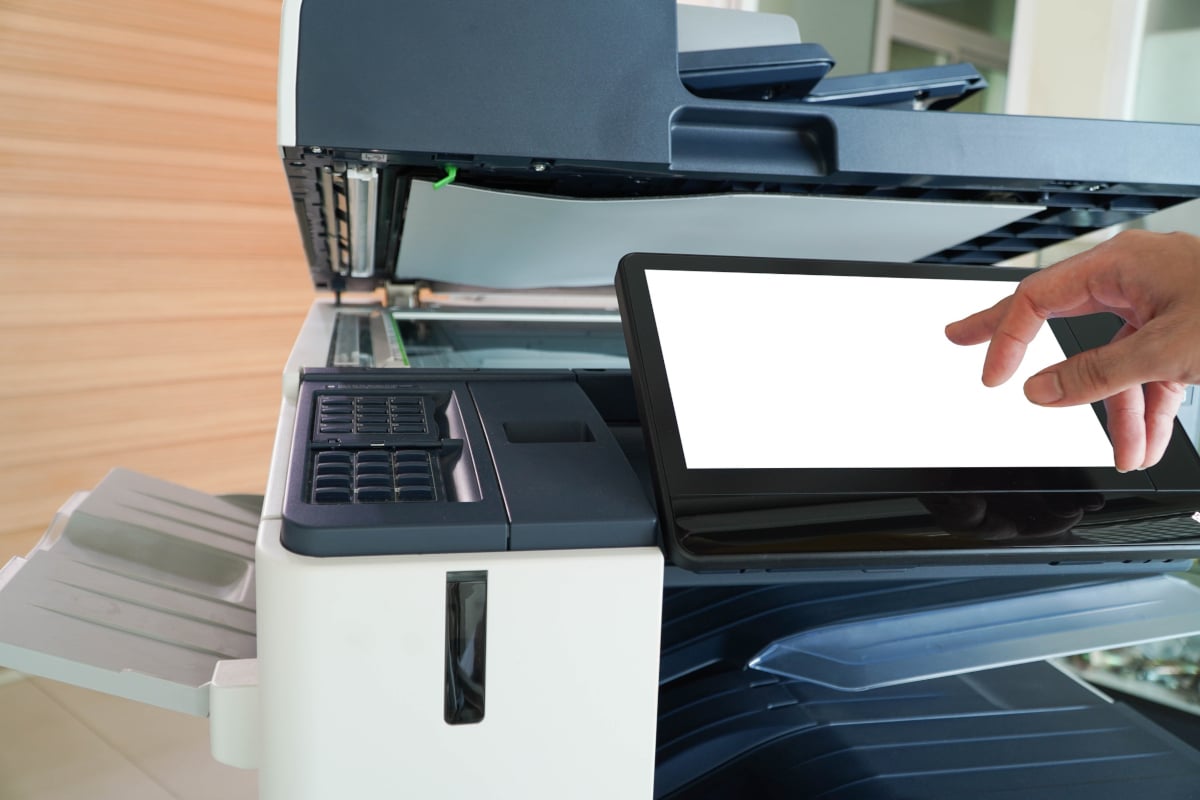
Finding the right copier for your office is not only about the machine itself. The bigger decision is the financial path you choose.
Many Austin businesses struggle with the question of whether to buy a copier outright or secure a copier lease that spreads the cost over time. Both options can work well depending on your print volume, growth plans, and need for ongoing support.
Copiers, printers, and multifunction devices have become core office equipment for nearly every industry in Central Texas. As workflows shift toward remote collaboration and digital document management, the way your device is financed has a direct effect on:
- cost control
- efficiency
- long-term reliability
This guide breaks down both options with clarity so you can select the path that supports your business and keeps your print environment running smoothly.
Key Takeaways
- Buying a copier offers ownership and long-term control, but requires planning for repairs, supplies, and upgrades.
- Leasing provides predictable costs, modern technology, and built-in support for ongoing performance.
- Short-term rentals fit temporary or seasonal needs without long-term commitments.
- Print volume, growth plans, and service expectations should guide the decision.
- Choosing a knowledgeable local dealer improves reliability and keeps your equipment running smoothly.
Understanding the True Cost of Buying a Copier
Buying a copier gives your business full ownership of a piece of office equipment that you can use for as long as you like.
For some companies, that simplicity is appealing. You pay once, the device is yours, and you decide when to upgrade.
A high-quality office copier or multifunction printer typically requires a significant upfront investment. The total cost does not stop at the purchase price. You also need to budget for:
- Toner and other consumables
- Parts and copier repair
- Service calls when something fails
- Occasional upgrades to keep up with new workflows
If you have a low to moderate print volume and do not expect major changes in how your team uses a copier, buying can be a cost-effective option. It can also fit organizations that already have internal technical support to triage minor issues before calling a repair service.
For companies that want to explore options, copier sales at Copier Depot include both new and used systems, which gives you more control over how much you invest upfront.
Advantages of buying
- Full control over a fixed asset
- No monthly lease payments
- Works well for stable, low-volume environments
- You decide when to replace the machine
Disadvantages of buying
- Higher initial cash outlay
- You carry all maintenance and repair risk
- Technology can become outdated before the device wears out
- Upgrading usually means another large purchase
When a Copier Lease Makes More Sense
For many Austin businesses, a copier lease is easier to align with cash flow. Leasing allows you to access state of the art equipment with a predictable monthly payment instead of a high upfront cost.
With a copier lease, you can match the term of the agreement to your plans.
Some companies choose shorter terms to keep technology fresh. Others choose longer terms to lock in a known monthly cost. The flexibility makes it easier to align your copy lease or printer lease with your budget and growth forecasts.
Leasing often pairs naturally with a service agreement. This can include toner, parts, and copier service, handled by a local company that knows the Austin market. Copier Depot’s service team supports a wide range of Austin copiers for businesses that want both reliable hardware and fast support.
Advantages of buying
- Lower upfront cost compared to buying
- Predictable monthly expenses
- Easier access to current printers and copiers
- Service and supplies can be bundled into the agreement
- Simple upgrade path at the end of the term
Disadvantages of buying
- Total cost over many years can exceed a one-time purchase
- Ending a lease early can include fees
- Terms and conditions need careful review before signing
For growing teams, the ability to lease a copier and then step into a newer model at the end of the term can be more valuable than owning a device that may not keep up with future needs.
Why Short-Term Rentals Still Have a Place
Some organizations do not need long-term commitments at all. A copier on rental for a limited period can support:
- Construction trailers and job sites
- Conferences and trade shows
- Temporary offices during moves or remodels
- Seasonal or project-based teams
Short-term printer and copier rental gives Austin businesses access to high-quality office equipment without a multi-year contract. Rentals are also useful as a backup when a primary machine is down, or as a way to test a configuration before signing a lease.
Comparing Long-Term Cost and Support
The buy vs lease decision is tied closely to support expectations. A copier is part of your daily workflow, so when it fails, the impact is real.
Many Austin businesses choose partners based on how quickly a repair service responds and how well the equipment is maintained over time.
Key questions to consider include:
- How fast does the dealer respond to service calls?
- Are parts stocked locally?
- Will you work with a consistent service team that knows your environment?
- Is preventative maintenance included?
When you own the machine, you choose how to handle copier repair, either by paying as needed or by arranging a separate service agreement.
When you lease, service is often built into the plan, which can be more cost-effective for higher volume environments.
Copier Depot’s copier repair offerings are designed to keep equipment running smoothly for Austin businesses, with local technicians and direct access to parts.
How Print Volume Shapes the Best Option
Print volume may be the most practical filter for your decision.
If your team prints consistently at higher volumes, your device sees more wear. In that case, a lease that includes maintenance, repairs, and regular refresh cycles can help protect uptime and keep your cost per page under control.
If your office prints lightly or you rely heavily on digital document management, you may not need the highest output systems. Buying a modest, reliable device can be enough, especially if you expect your needs to remain steady.
The decision is not only about today’s volume. Think about how your business might grow over three to five years, then choose a structure that gives you room to adapt.
Choosing the Right Partner in Austin
Regardless of the path you choose, the dealer you work with matters. A strong partner offers more than just equipment. Look for:
- A clear explanation of buy, lease, and rental choices
- Transparent terms for service agreements
- A wide range of devices that match different budgets and workloads
- Local customer service that is easy to reach
- Experience with document management and managed print services
Copier Depot has served Central Texas since 1984 as a local company focused on high-quality equipment, cost-effective leasing options, and responsive copier service for Austin businesses that want reliable office equipment combined with strong support.

 In the digital age, the way business is done has changed drastically and the paperless movement is big.
In the digital age, the way business is done has changed drastically and the paperless movement is big. The downside to going completely paperless is there may come times when you cannot access digital documents.
The downside to going completely paperless is there may come times when you cannot access digital documents.
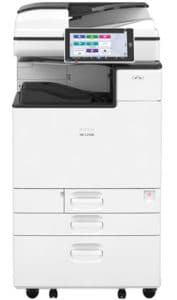
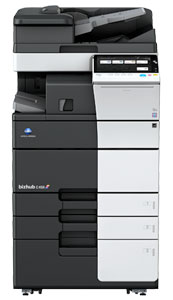
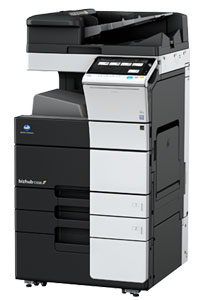
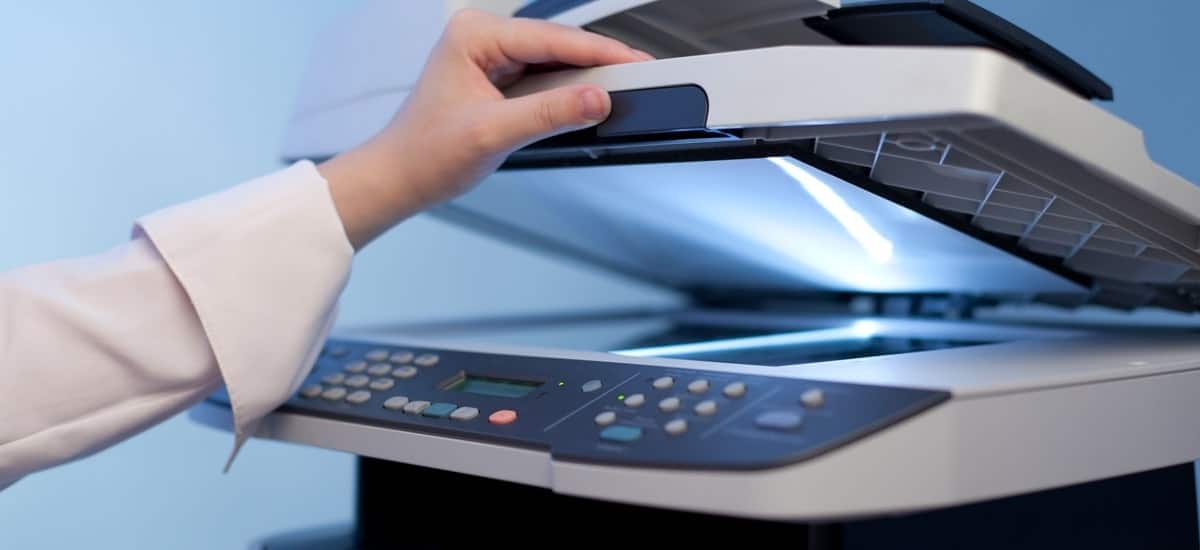 Deciding between buying or leasing a printer for small business may not be an obvious call. It really depends on the business and its needs.
Deciding between buying or leasing a printer for small business may not be an obvious call. It really depends on the business and its needs.



